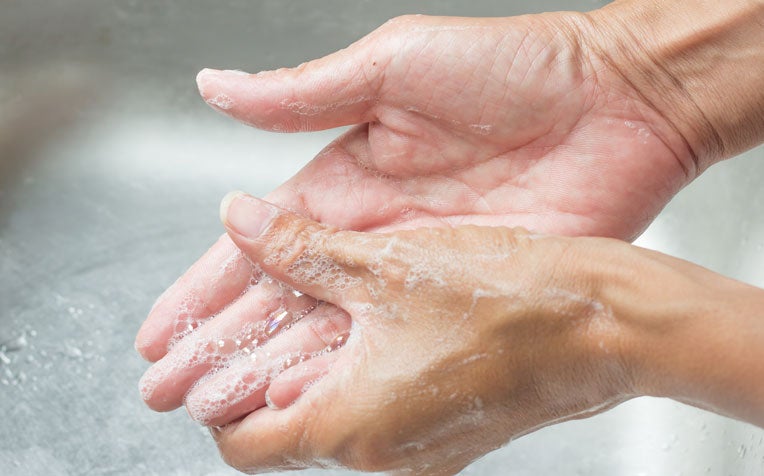
One sign of Obessive Compulsive Disorder (OCD) is excessive cleaning.
A person with obsessive-compulsive disorder (OCD) gets regularly beset by an “obsession” – repetitive, intrusive ideas or thoughts. These are not in harmony with the person’s values, and result in a lot of anxiety. In an attempt to relieve the anxiety, the person may repeatedly engage in certain behaviours or rituals or mental acts, which are called “compulsions”.
The type of OCD often portrayed on TV is cleaning. These sufferers have recurrent intrusive thoughts about cleanliness. Some have the fear that if they remain unclean, misfortune may strike their family. They may then wash their hands or spend an excessive amount of time in the shower washing up in a specific order.
If they think they missed a step, they may start all over and the bathing can take many hours, chalking up massive utility bills. Their skin can also break. Unfortunately, these cleaning rituals do not realistically neutralise their fears.
Some patients are so exhausted that they avoid stepping into the bathroom for days. They may even get their family members involved in the cleaning rituals.
Apart from cleaning, the other common compulsive behaviours are checking and counting. For example, the person has to make sure that the main door is locked or the tap is turned off, and then goes back again to check. “Some patients have broken their door knobs from the repetitive checks,” says Dr Victor Kwok, Consultant, Department of Psychiatry, Singapore General Hospital (SGH), a member of the SingHealth group.
“Persons with OCD are often aware that these thoughts and rituals are irrational or excessive, but they cannot stop,” says Dr Kwok.
Obsessive-compulsive disorder is one of top three mental disorders in Singapore. About 3 per cent of the adult population will suffer from OCD during their lifetime, according to the Singapore Mental Health Study (2010).
On average, OCD sufferers wait nine years after the start of their symptoms to seek help. The OCD may stop them from leading a normal life and some patients are unable to work. Patients may develop depression too.
What causes OCD?
Doctors have agreed that OCD is due to a combination of both psycho-social and biological factors. Brain imaging of these patients have identified changes in the structure of the brain. It is also believed to be due to problems with certain brain circuitry. Low levels of serotonin (a neurotransmitter or brain chemical) have been linked to it. Some cases have been attributed to childhood throat infections.
Treatment for OCD
Doctors usually treat OCD patients with both medication and psychotherapy such as exposure and response prevention (ERP).
“About 50 to 70 per cent of patients can get their OCD under control,” says Dr Kwok.
Doctors may prescribe selective serotonin re-uptake inhibitors (SSRIs) and these are often required at high doses. “The gold standard is still clomipramine, an older medication that is a tricyclic antidepressant, but because of the many side effects, it is not the first choice,” says Dr Kwok.
In ERP, OCD patients obsessed with cleanliness may be asked to expose themselves to dirt. They have to stay with the anxiety-provoking situation and let the fear climb. During this time, they must abstain from performing the ritual of cleaning for as long as they can.
Repeated exposure will lead to the person habituating to the fear. “Patients need a lot of motivation to undergo therapy,” says Dr Kwok.”
In some facilities, there are community outreach teams that can go to the patient’s house to help them and their family. “The family members need a lot of support too. They are also told to stop being part of the ritual, and the outreach team may even enlist them in therapy.”
In very severe cases that do not respond to both therapy and medications, a neurosurgeon may be asked to assess the patient and perform a complicated operation to cut the circuits linked to OCD. “This is reserved for very severe cases and the operation is extremely rare. A committee has to assess whether the patient has exhausted all other options because of the risks involved,” says Dr Kwok.
Ref: R14
Contributed by


















 Get it on Google Play
Get it on Google Play